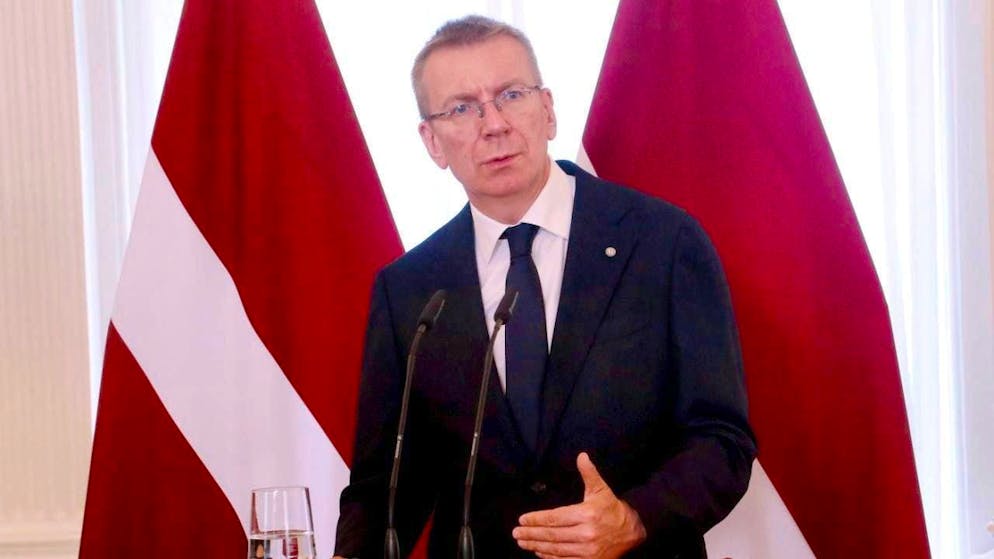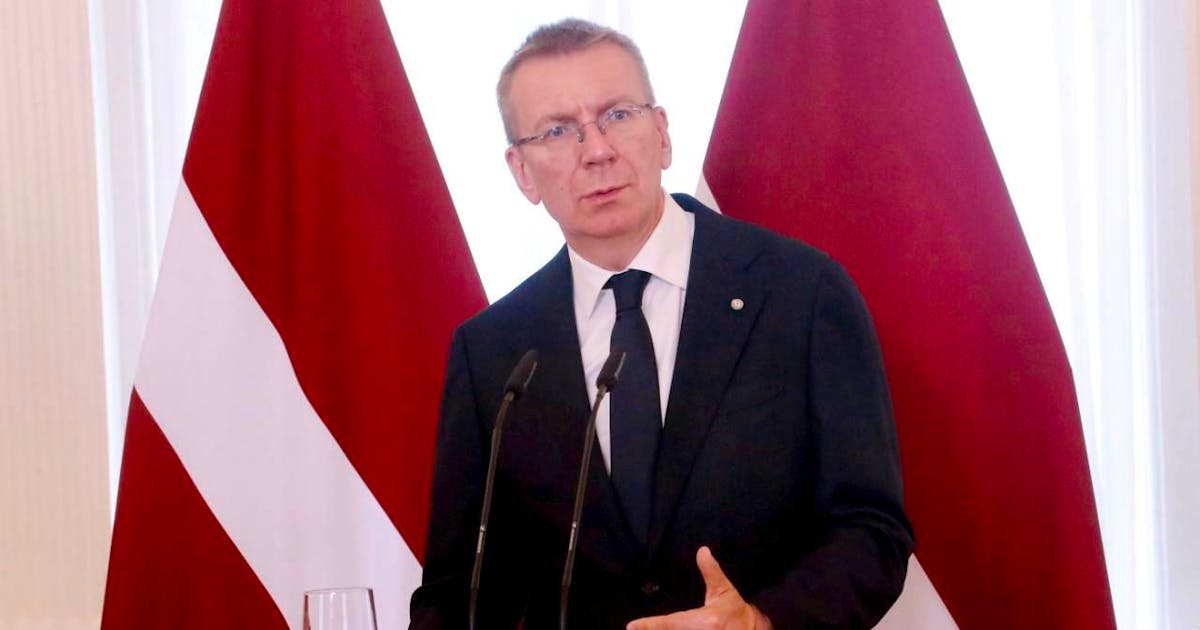
Latvian President Edgars Rinkevics calls for more speed in fortifying the border with Russia and Belarus. (archive picture)
Keystone
Latvian President Edgars Rinkevics is pushing for faster fortification of his country’s eastern EU external border with Russia and Belarus. Construction of the fortifications is underway.
“In view of what is happening in Ukraine, we must be prepared for all scenarios, at least in the next few years,” he said during a visit to the border at the border triangle with Russia and Belarus near Zaborje. There, Rinkevics in military uniform, together with army chief Kaspars Pudans and border guard chief Guntis Pujats, informed himself about the construction of a border fence and concrete and armored barriers.
“The border as it is today is fundamentally different from how it was two years ago,” said Rinkevics, praising the progress made in erecting the barriers along the 400-kilometre-long border with Russia and Belarus. At the same time, he warned that there was still a lot to be done. This applies both to the construction of the border fence and its equipment with sensors and surveillance cameras as well as to the erection of concrete and armored barriers. The head of state of the Baltic EU and NATO country also spoke out in favor of extending the border strip from 12 to 42 meters.
The construction of the physical barriers along the border serves to create the Baltic defense line, with which Latvia and its neighboring states Estonia and Lithuania want to protect themselves from possible attacks. The three countries are thus reacting to the Russian war of aggression against Ukraine. The construction is in line with the NATO defense plans for the Baltic region.
Long-term expansion necessary
Latvia plans to invest around 300 million euros in strengthening the border between 2024 and 2028. According to Rinkevics, work on the most dangerous sections is proceeding according to plan. However, the expropriation and compensation of owners of land along the border must be regulated. The Latvian president said that the parliament must deal with a law submitted by the government as soon as possible.
Rinkevics also pointed out that border security is a permanent task. “The border must be constantly improved and developed. This requires continuous work and attention from the army and border guards,” he said. “I hope that these preparations and the additional work – together with the presence of NATO soldiers – will make any potential attacker think about what they are doing or better not doing.”
